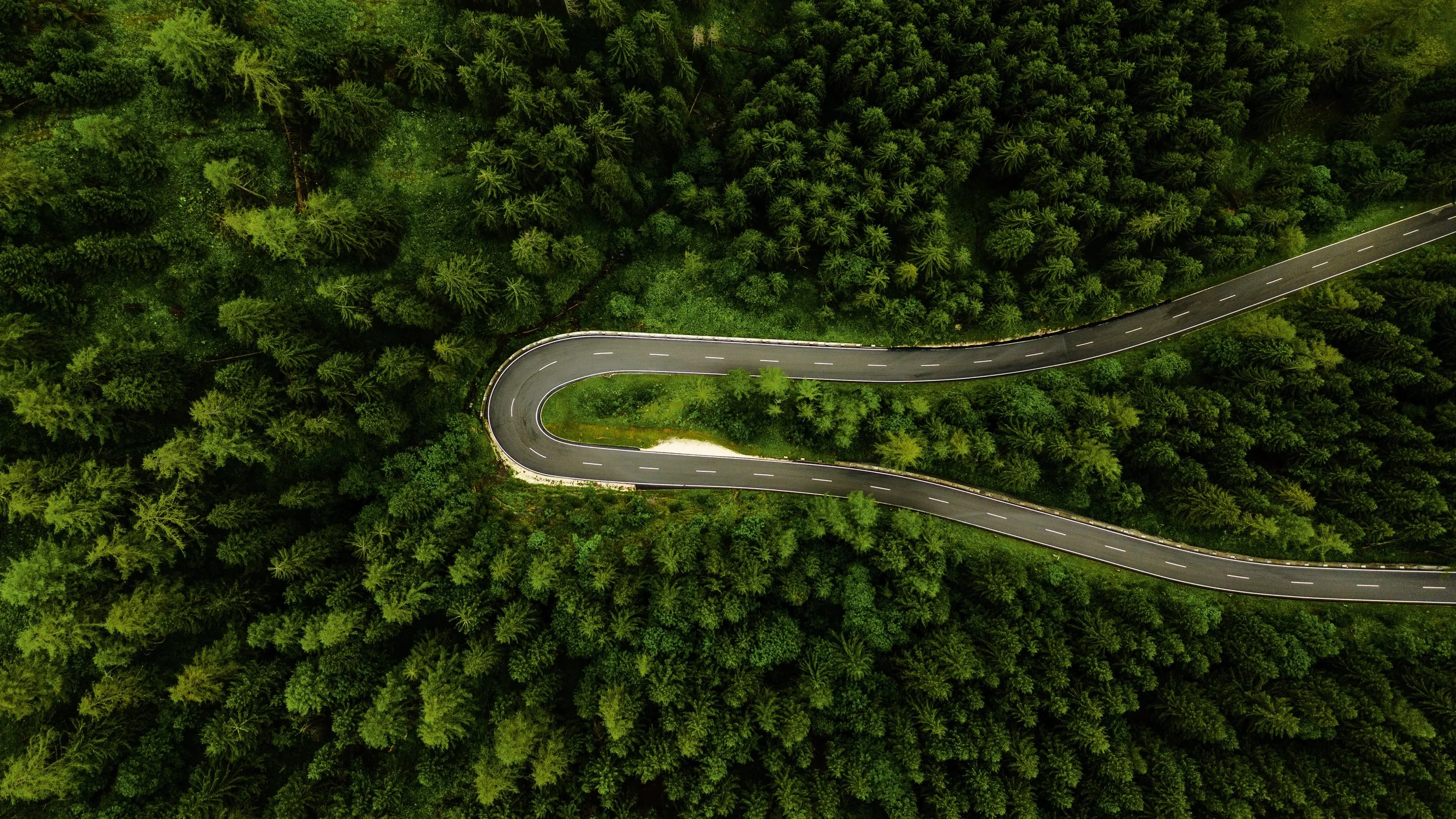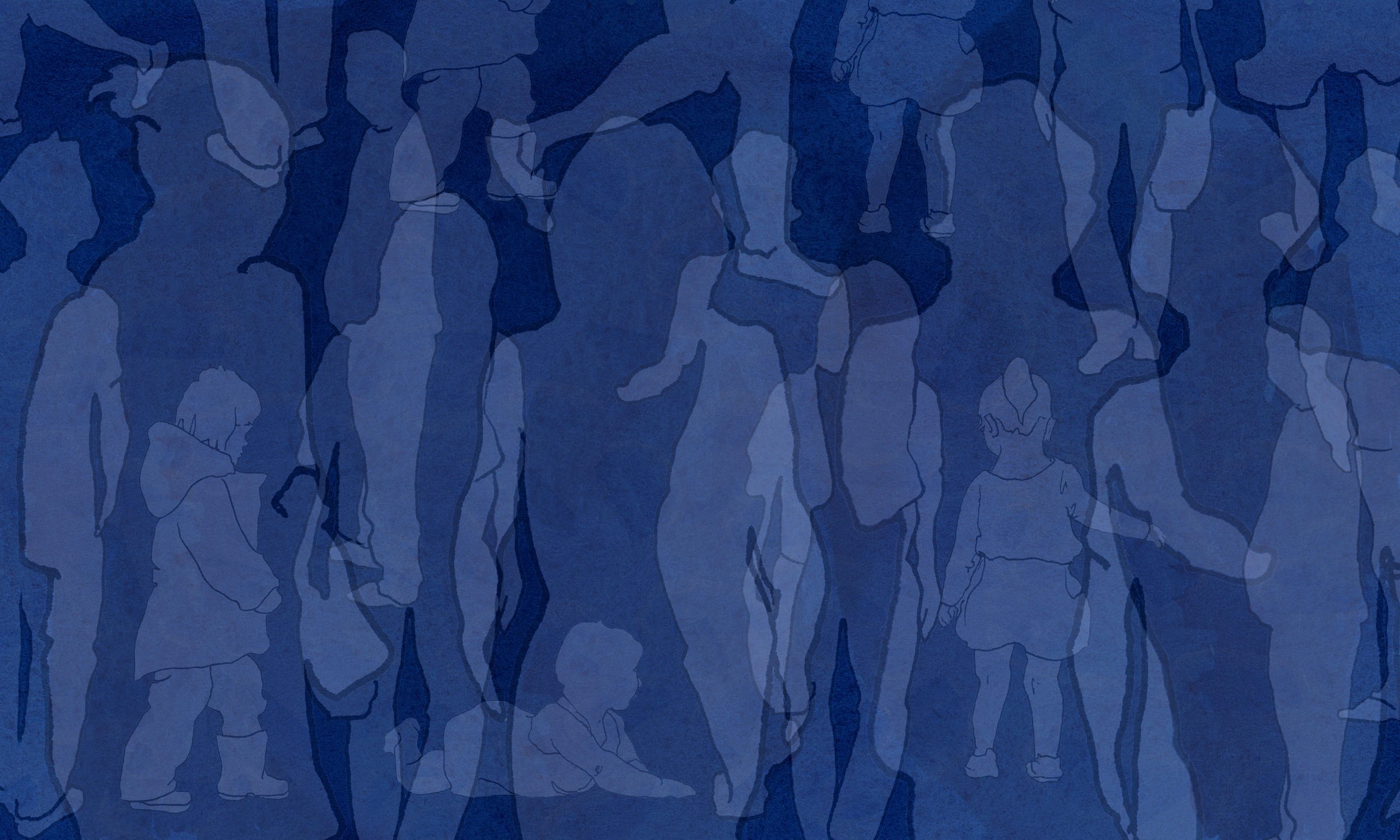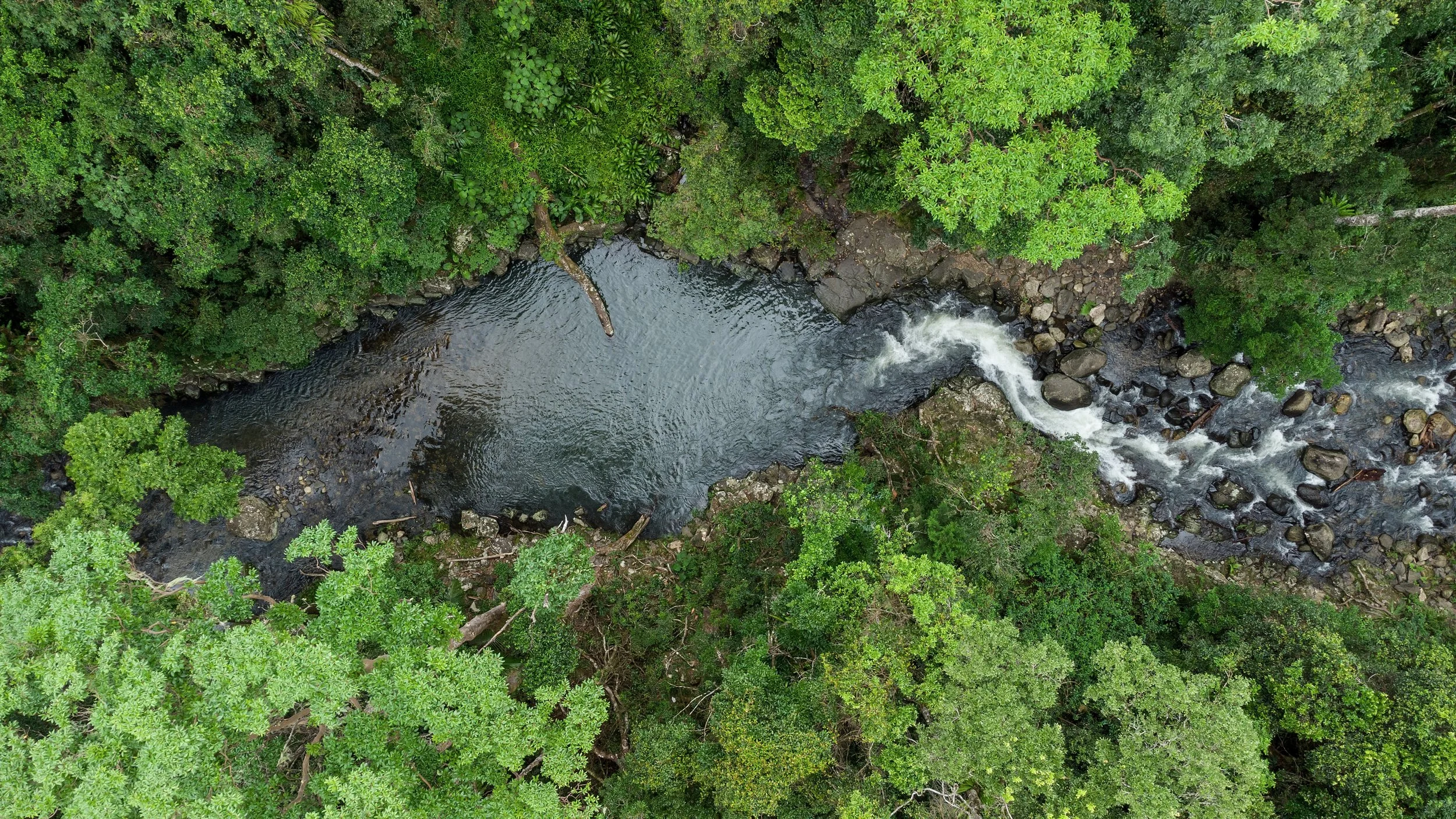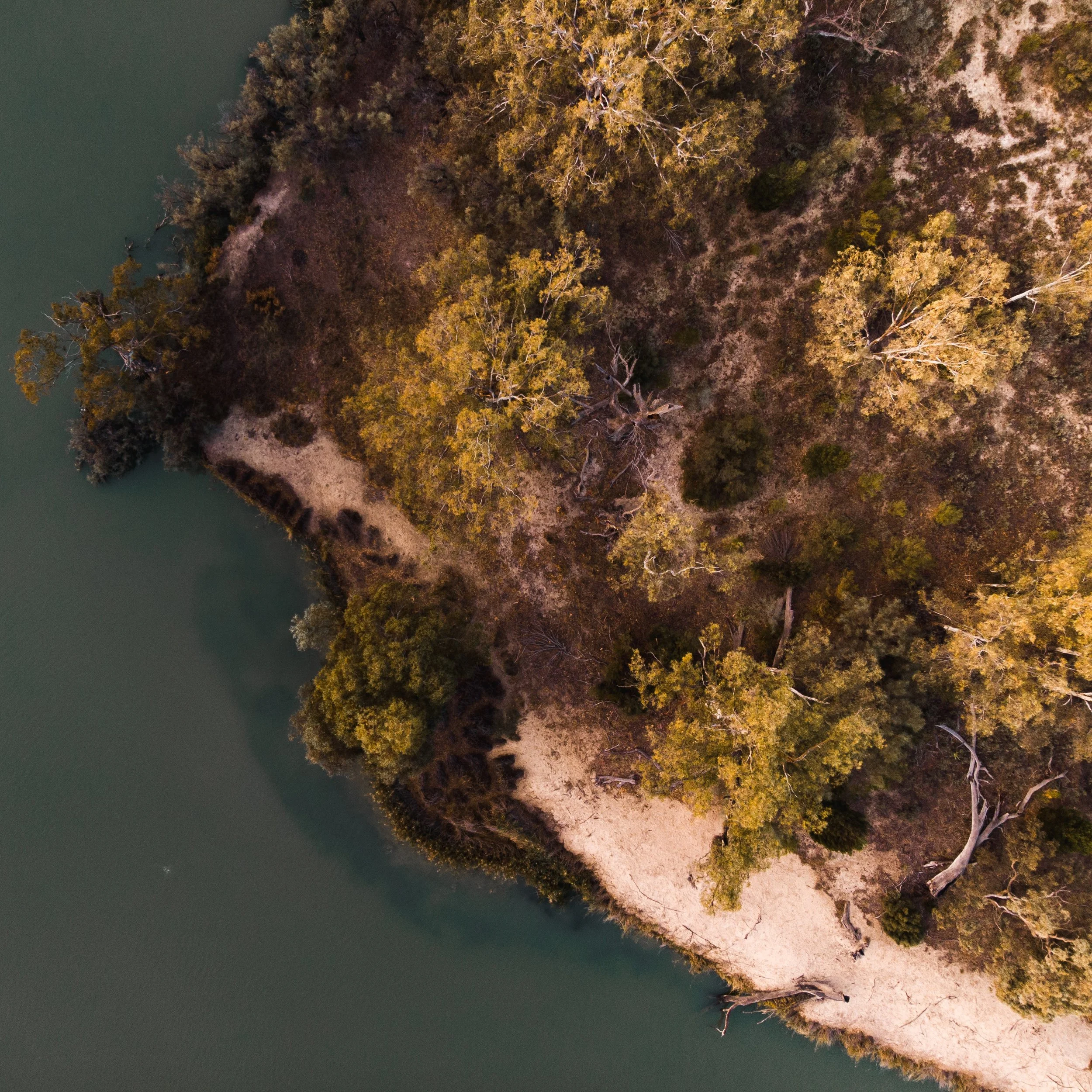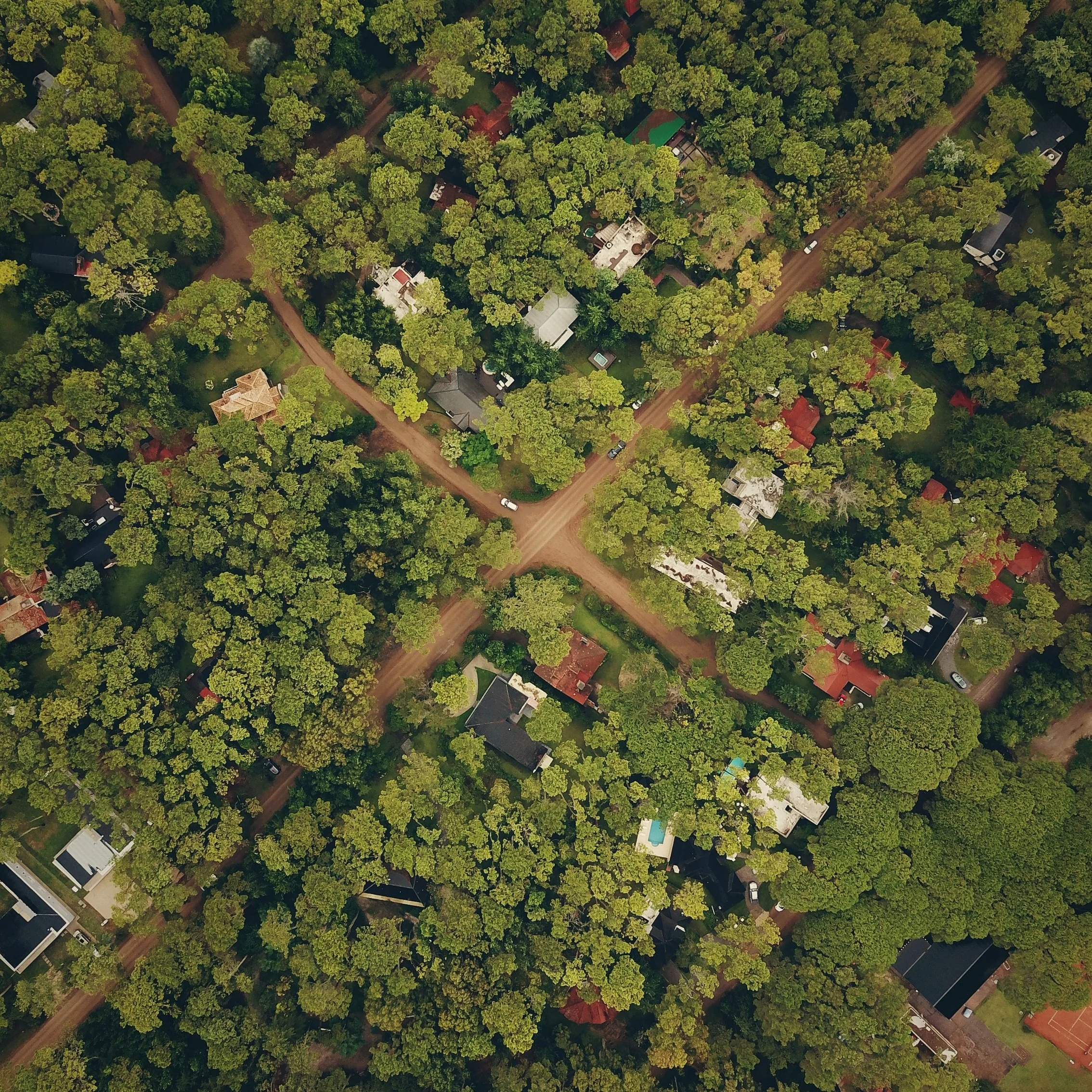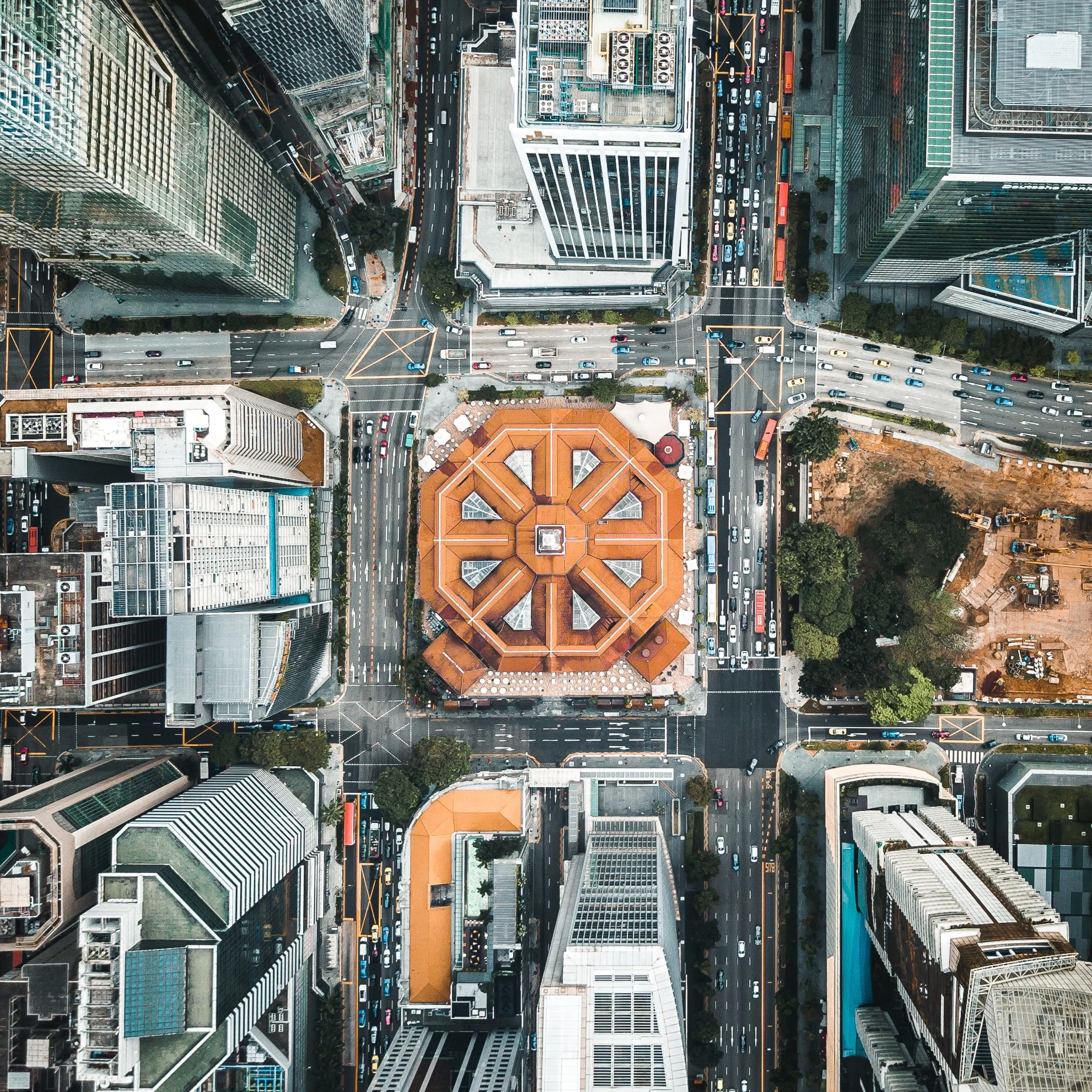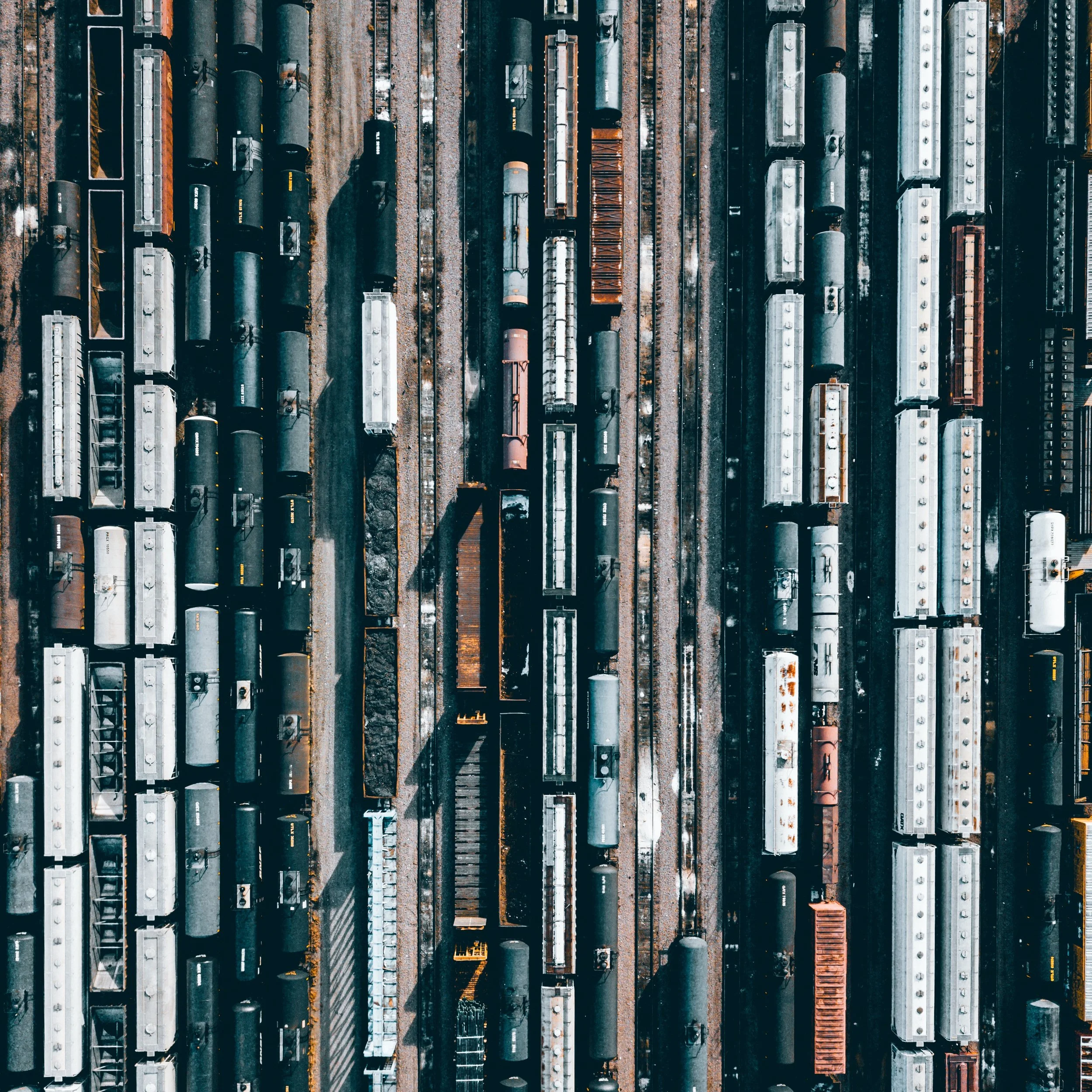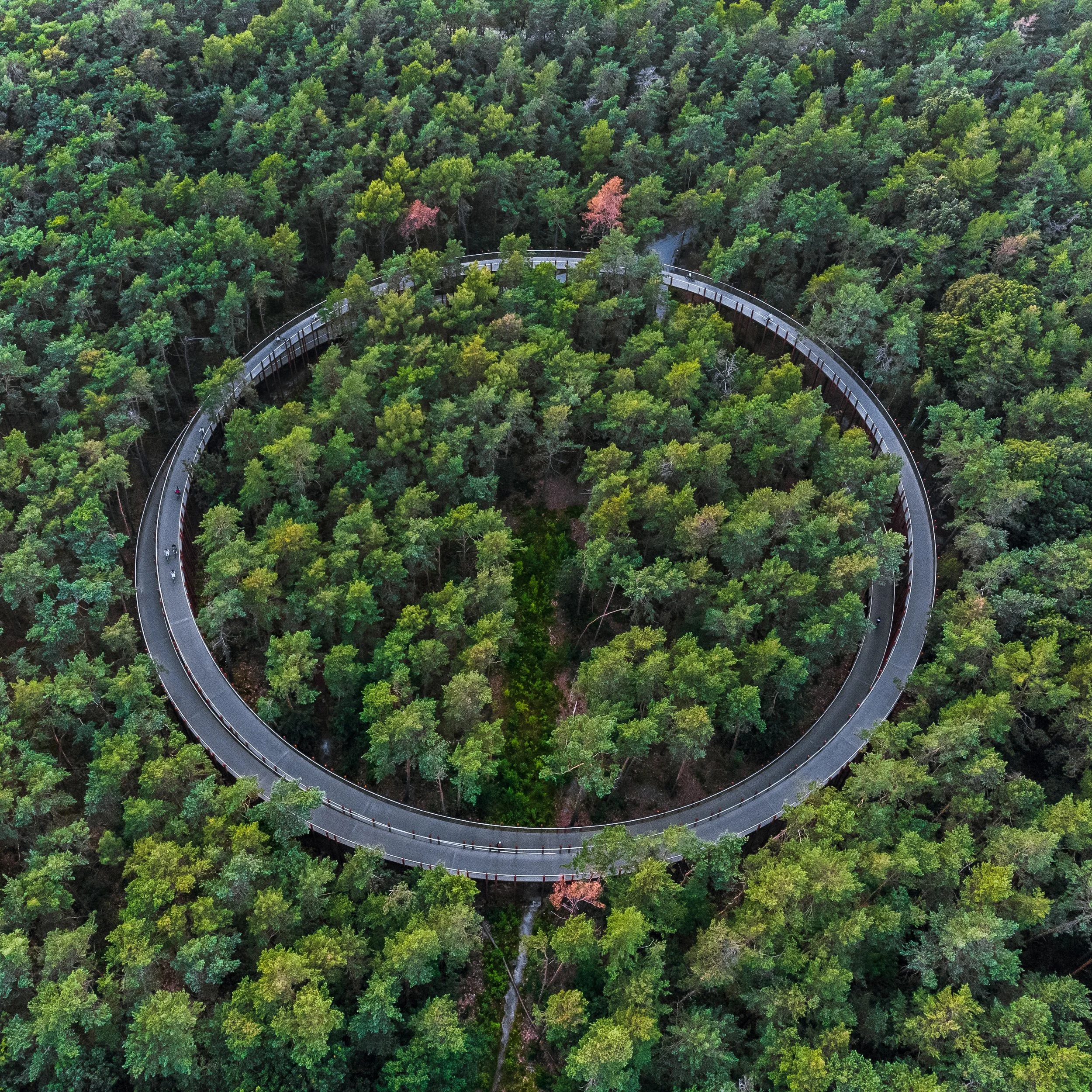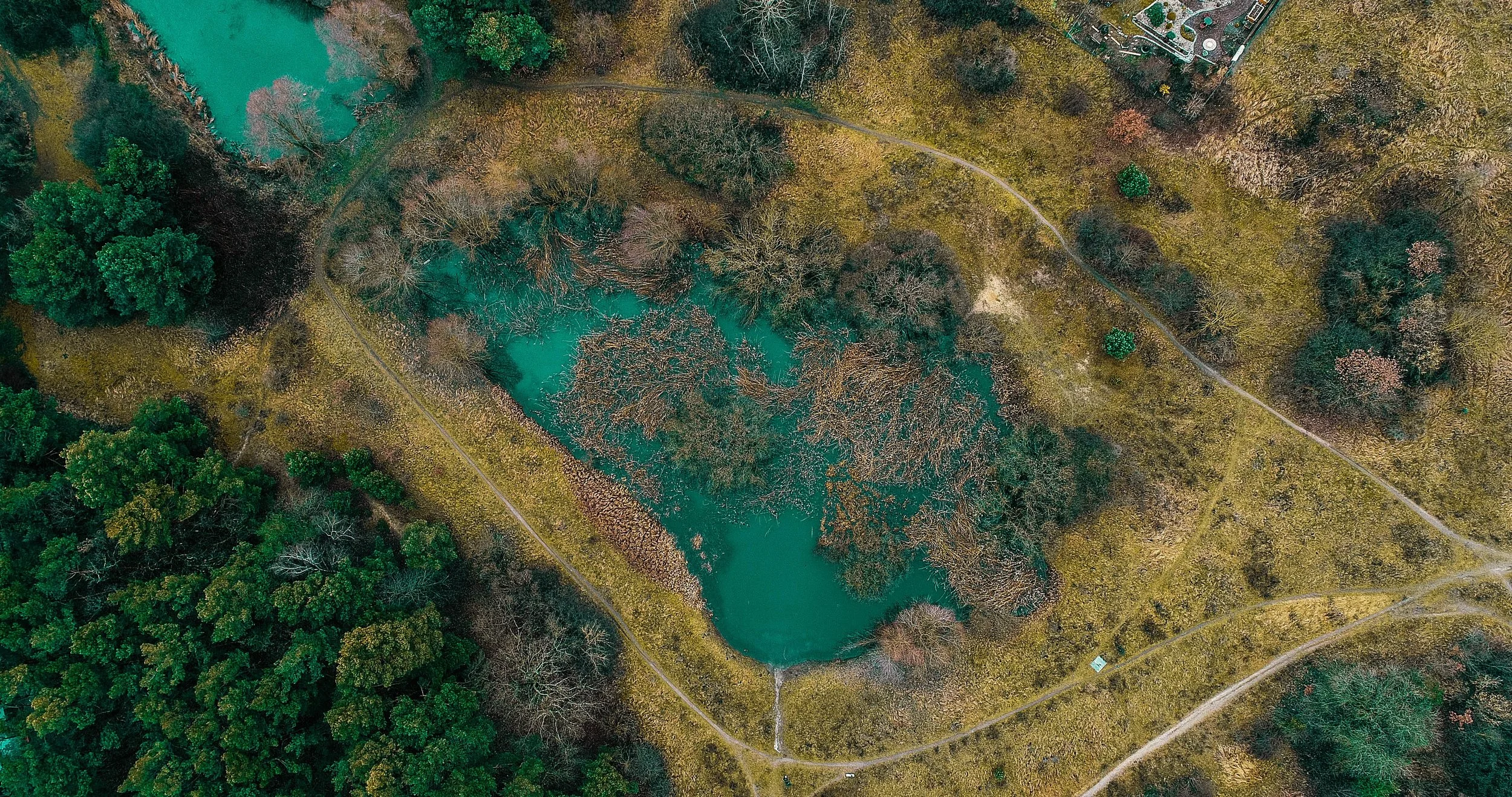The Road to Wellbeing PART 2: The bird’s eye view
Image by Nathan Hurst (Unsplash)
How do we build an economy that’s truly fit for purpose? In part 1, we talked about why all roads lead to economic systems change — so it’s time to get equipped.
What does an economy for the people actually look like? How is an economy that serves us, and the natural world on which we depend, even possible? What are the systemic changes that get us there?
Image by Zac Edmonds (Unsplash)
If these questions all seem rather overwhelming and you’re looking for a starting point, you’re not alone. reMAKING the economy is a thousand-piece puzzle, says political economist, author and advocate for economic systems change, Dr Katherine Trebeck.
People all over the world are working on their little (or big) piece: in government and policy, in business and civil society, in community leadership. From unions to universities, professional networks and across civil society — new groups, forums and content are being created.
Depending on where you find yourself in this puzzle, you might gravitate towards a particular area: perhaps community wealth building, pro-social business, wellbeing government, de-growth, doughnut economics, ecological and feminist economics, circular economy, Indigenous perspectives, even ‘hoodie economics’. Lots of people are re-imagining what our economy can be, and putting ideas into action.
Fortunately, there’s a (metaphorical) gathering place: the ‘Wellbeing Economy’, a values-based term for “an economy in service of life,” where all these ideas are converging.
Dr Trebeck describes the Wellbeing Economy and its global alliance, WEAll.org, which she co-founded, as a kind of “picnic blanket” where people are coming together — with various national and regional groups forming, knowledge being shared and policy agendas being adopted by local governments all the way up to the European Union. (If you want an introduction to the Wellbeing Economy in your ears, I highly recommend my podcast chat with her here.)
“A Wellbeing Economy is an economy designed to serve people and the planet, not the other way around. Rather than treating economic growth as an end in and of itself and pursuing it at all costs, a Wellbeing Economy puts our human and planetary needs at the centre of its activities, ensuring that these needs are all equally met, by default.”
So how do we build it? As with all systems change, this isn’t just a policy change, but a paradigm shift. So let’s start with the big picture.
The Paradigm Shift: from profits and growth to wellbeing for all
We need to leave neoliberalism behind.
The neoliberal, economy-first paradigm we’ve been steeped in for decades is the problem, and we’re still trying to shake it off.
More economic growth will not automatically trickle down. More privatisation will not deliver better outcomes. A diminished role for government will not magically empower markets to solve all our problems. Putting shareholders first will not create better workplaces, companies or societies.
Neoliberalism has done a very good job at convincing us that there is no alternative, but the neoliberal project itself took decades, dedicated champions and dollars to take hold. It was made. It can be reMADE.
How do we leave neoliberalism behind, for good? Here are landmarks on our journey.
Broaden the vision of what we measure and value
Broaden the vision of what we measure and value: from the invisible care economy, sometimes called the ‘core economy’, and the natural world; to adopting better indicators of success than Gross Domestic Product (GDP).
Many of these alternative frameworks already exist, like the Global Progress Indicator (GPI), the Human Development Index or the UN’s Sustainable Development Goals (SDGs). Others we ought to decide collectively, like they did in Wales.
In Australia, Treasurer Jim Chalmers has put oars in the water with Treasury’s Measuring What Matters framework, an important step forward. He’s also written about shifting to a more values-based capitalism, as the kind that comes ‘after the crises’. We’ve had no shortage of those.
Certainly broadening our gaze and measuring things beyond GDP can help us, but the paradox remains: not everything that truly matters can, or even should, be measured. Part of leaving neoliberalism behind is challenging the bean-counting, efficiency-maximising, mechanistic approach to what we regard as important and worthy of support. More data definitely gives us the ability to make better maps, but it’s still up to us to plot a better course.
Reclaim and reimagine what community can be
Reclaim and reimagine what community can be: A few years after Ronald Reagan told people that “government is the problem”, Margaret Thatcher famously declared that “there is no such thing as society”. It is hard to underestimate the damage of these two ideas. We’ve certainly become more isolated, lonely, anxious and time poor in neoliberalism’s wake; but the very governments keen to appoint Ministers for Loneliness and encourage volunteering, sporting clubs and church attendance often fail to recognise the impact of ‘economy-first’ culture and policies on our social fabric or mental health.
We know that the overall health of our relationships strongly affects the health and length of our lives. Community is about how we co-exist with one another, in spaces and contexts that are neither wholly public nor wholly private. It follows that places with a ‘good sense of community’ are better places to live, and people who feel ‘a strong sense of place’ recover from disaster better. And that we thrive when we cultivate a mix of agency and belonging in our communities: including opportunities to care, connect and contribute, and to see and be seen outside of purely transactional interactions and profit-driven spaces.
So, as we’ve written about before, we need to prioritise the enabling infrastructure of good communities, not as a ‘nice-to-have’ but as essential to our wellbeing. That includes infrastructure like quality public transportation, parks, playgrounds, community and seniors’ centres…public spaces that are thoughtfully designed, accessible and well-maintained. It includes community activities where people are actively welcomed and engaged at free or minimal cost. Importantly, it includes the time to be able to participate in these activities outside of work and caring responsibilities, and a sense of their value (hello funding for women’s sport following the success of the Matildas!).
Infrastructure for healthy communities also includes pathways for active community involvement (not just ‘engagement’ or ‘consultation’) in government decision-making, and meaningful opportunities to be part of democracy more than just once every few years. The story of Wales and how they came to their Wellbeing Goals is currently setting the gold standard for this.
Around Australia and across the world, communities are reclaiming their ability to collectively decide their future: in kitchen table conversations, through participatory budgeting and using deliberative democracy. They are tackling the climate crisis by planning for a carbon-constrained future, developing community-owned renewable energy and electrifying their suburbs. They are rejecting multinational chains and developers in favour of community wealth-building and becoming the change they want to see in the world in the movement of transition towns.
Community cannot be left to replace government or clean up after business; this is not about letting anyone off the hook. But reclaiming the importance of community and reimagining what it can do is an energising part of this paradigm shift.
Recast the role of business
Recast the role of business: from an amoral profit maximiser and servant of the invisible hand of the market, to a servant of society — nested within various relationships (social and ecological) all the way up the supply chain.
We currently give business significant legal and financial advantages. Leaving neoliberalism behind means expecting far more in return.
Right now, we applaud the billionaire executives’ brilliance and altruism, while ignoring the lost taxes and wages they hoarded, the environmental harm they caused and did not pay for, or the political donations they used to buy themselves additional access and influence. The New York Times journalist and author Anand Giridharadas calls this ‘the elite charade of changing the world’. As a starting point, it’s time for business to pay their tax and do less harm.
Getting into more exciting territory, nothing is inevitable about shareholder primacy or the way most companies are currently structured.
Certainly the ecosystem of BCorps and BLabs, impact investors, ‘conscious capitalists’ and social entrepreneurs is growing. Some of these businesses are still privately owned for profit, while others direct their profits into a social or ecological mission, in a kind of hybrid model with potential to expand. There are also countless examples of employee-owned companies: from the humble neighbourhood food co-op to huge conglomerates, which generally do a better job of sharing the wealth and staying accountable to all stakeholders (community, employees, environment); not just shareholders. I was surprised to learn that there are more than 1,700 cooperatives around Australia, in sectors ranging from the arts to agriculture, childcare, healthcare, education, energy, finance, housing, retail, super funds, transport and even wine.
Embracing business models that bake in better outcomes from the beginning means we don’t have to wait for governments and community organisations to address problems downstream, but can ask the market to do more of the heavy lifting.
Recast the role of government
Recast the role of government: Governments need to move from market-fixing to market-shaping, as Marianna Mazzucato argues so brilliantly. The current economic system is rudderless. We’ve been told that the best governments can do is intervene in market failures.
In reality, government can be a democratically-informed and accountable director of purpose, upholder of values and co-creator of value — driving mission-oriented economies that deliver for the public good. We wouldn’t have GPS, phone cameras, home insulation, medical scanners, water filtration, modern-day software, smoke detectors or dozens of other life-changing essentials were it not for the NASA space program. We wouldn’t have the internet of today without the US government agency DARPA. Elon Musk claims the credit for Tesla, but electric car technology and his own company received billions of dollars of government investment, subsidies and loans. And under the Biden Administration in the US, the Inflation Reduction Act has become ‘the Green New Deal’ of our era, shaping a new market for clean energy and pressuring countries like Australia to catch up.
Much of our work at Australia reMADE is looking at the role of the state beyond the neoliberal paradigm, including the role of the public sector. We tell stories of how ‘government can do amazing things’, and ask ‘what are budgets for?’. We’ll have more to say on potential policies for reMAKING our economy in part 3 of this blog series.
Recast the role of the economy itself, from an end to a means
Recast the role of the economy itself, from an end to a means: The economy, after all, is nested within society, on a finite physical planet; not the other way around. This sounds obvious enough but is still radical when it comes to orthodox economics courses, business press media columns and the accepted wisdom inside the halls of power. As we argued in part 1, notice how often you hear important, good things described in terms of their benefit to the economy; or bad things described in terms of their cost to the economy — as if the real tragedy is we’re not making as much money as we possibly could. We’ve been conditioned to believe that everything exists to serve ‘the economy’ as though it’s some thing, out there, that we better not upset; instead of the other way around.
When I asked Dr Trebeck on our podcast what she would have leaders in government do differently, this was her first key point: flip from the script. Not 'how does [X] serve the economy?' but 'how does the economy serve [X]?'. Gender equality, healthy and well-educated populations, a thriving natural world: these are all things we want in their own right, and we can put the economy to work in their service. It’s not just semantics, but a powerful reordering of purpose and priorities. Flip the script.
Another way to think about this is: if reMAKING the economy is a thousand-piece puzzle, with everyone working on their piece, where do you start in a puzzle?
As Dr Trebeck says, you start in the corners.
WEAll’s 4Ps of economic systems change are purpose, prevention, pre-distribution and people power.
Think of them as the ‘four corners of the Wellbeing Economy’ puzzle, from which to build.
PURPOSE: replacing economic growth with a better purpose
— remembering that the very economist who invented GDP as a measuring tool warned us against using it to guide policy or purpose.
“Purpose is about realigning the goal of the economy and the entities that constitute it with the needs of people and planet. Think of the gathering momentum of activists and scholars calling for Gross Domestic Product to be removed from its ill-deserved pedestal as a measure of a nation’s success,” Dr Trebeck writes.
“Partly sparked by this, over half of OECD countries have government measurement frameworks designed to put wellbeing firmly on the table, rather than being constrained by the narrowness and blind spots of GDP. In turn, many governments are starting to shift to what is often called Outcomes Budgeting: looking at what is being achieved and changed, rather than just what is being spent and done. Also important is valuing what matters – things like nature, community-building, and care in the home – rather than equating market price with value.”
PREVENTION: Moving upstream
— recognise where we’re caught in cycles of failure demand and defensive expenditures (‘spending to fix what we continue to break’). Prevention is about asking why a problem emerges and looking to address root causes rather than coming up with new band-aid solutions.
“The more circular an economy, the less need for beach clean ups. The more people can earn enough to live on, the less need for food banks and tax credits to top up wages…We see how with more renewable energy, the less need there is for carbon sequestration; and with more jobs that do not constrain living good lives, the less need there is for anxiety treatments,” Dr Trebeck argues.
Examples include France moving towards a circular economy, the ACT running on renewable energy, organisations offering shorter standard working weeks.
PRE-DISTRIBUTION: Asking the market to do more of the heavy lifting
— in the first place to reduce inequality and address environmental harms. As noted above, alternative business models are ramping up that reduce inequality and promote accountability to all stakeholders. Equally, global moves to ensure a living wage, get worker representatives on executive boards and build wealth at the community-level change how money and power are distributed. When markets do more good and less harm, either through regulation or voluntary changes, there is less harm mitigation for government, charities and others to do.
PEOPLE POWER: Empowering and inspiring people
— expanding deliberative democracy (citizens’ assemblies, participatory budgeting) and countervailing powers (unions, trade associations, regulations); rebuilding trust in institutions by reclaiming their purpose (terrain eight of our ‘ten terrains of transformation’, with more of our work on that here); and telling stories that meet people where they are, but don’t leave them there.
Right now we have a trillion dollar advertising industry telling people that ‘more’ is always the answer. We internalise messages every day from our culture that we are not enough (‘do more, be more, buy more, achieve more’).
Many wonderful leaders are encouraging people to embrace wellbeing on a personal level: to be more thoughtful about their time and money, spend more time in nature and with loved ones, beware of internalised capitalism, see rest as resistance, and find ways back to our more connected, authentic selves. These new narratives are incredibly important, and we need more of them. But we won’t ‘be good people’ our way out of this alone; it’s not just an inside job. We need both structural change and cultural change to re-orient ourselves to a sense of deep worthiness and belonging (or Care, Connection and Contribution) as our driving values. We must join the dots between personal wellness and communal wellbeing, as Sophie Howe writes.
Where to from here?
In their book, The Economics Arrival: Ideas for a Grown-up Economy, Katherine Trebeck and Jeremy Williams ask the question: what is our economy for? Has all this desired economic growth now fulfilled its purpose in the wealthy countries of the world, and it’s time for a new purpose?
“What a tragedy it would be, if in the rush for more, the fruits of progress rotted before everyone had a chance to enjoy them. There’s no need to keep running, on and on. It is time to recognise that the richest countries have already Arrived in the world long hoped for. There are more than enough material and monetary resources. Yet most economies do not operate in a way that appreciates them or shares them very well.”
-The Economics of Arrival: Ideas for a grown up economy, page 1.
Material progress provides the foundation of a good life, they argue, like bricks and mortar provide the foundation of a good home. But we don’t live in the foundations — and now it’s time for us to turn our attention to the priorities that deliver quality of life. We have pseudo-satisfiers of consumerism filling family, leisure, nature and community-shaped holes in our lives. And we’re giving a lot of our time and money to try to make up for problems we’ve created (both through failure demand, but also ‘consolation goods’ — goods and services designed to console us, or make up for, our stressful lives).
Ultimately, whether we feel relatively optimistic or deeply anxious about humanity’s future, we can agree we’d all feel better if we decided our economy’s job was to help us all live well, share well, respect the Earth and enable greater wellbeing.
Younger, older, richer, poorer, different races and classes and genders — this is a movement for all of us. Governments, businesses, communities, parents, citizens and story-tellers: find your corner of the puzzle, find your people and gather others, talk about these ideas and lead from where you are. Let’s get excited to reMAKE our economy in service of life itself.
Read the Road to Wellbeing: Part 3
“The purpose of this journey could change. We could go from trying to own the world to trying to feel at home in it… And that’s when you take off your shoes, prepared to stay a while.”
Acknowledgements
Author’s note:
The ideas presented above build on the work of Australia reMADE, as well as many other experts. In particular, I’m grateful to Katherine Trebeck and Jeremy Williams, Kate Raworth, Marianna Mazzucato, John Quiggan, Tim Hollo, Stephanie Kelton, George Monbiot and Rob Hopkins; along with the Wellbeing Economy Alliance, the Centre for Policy Development, the Australia Institute and the wonderful leadership of Sophie Howe and the people of Wales. finally, a huge thank you to everyone who’s come onto the remakers podcast in season 3 to explain ideas further and offer up solutions.
There truly is an incredible ecosystem of thinkers, leaders and advocates for economics system change — from contemporaries like Joseph Stiglitz, Rutger Bregman, Amartya Sen, Richard Wilkinson and Kate Pickett to giants of modern history including John Maynard Keynes, Marilyn Waring, John Kenneth Gailbraith, and Herman Daly… making for an impossibly long list to acknowledge them all.
I recommend WeAll.org, the global Wellbeing Economy Alliance, of which Australia reMADE is a member, for a wide range of resources, examples and expertise. WeAll’s Australian hub is getting up and running if you want to get involved.
LILIAN SPENCER
Lily Spencer is the Co-Director of Australia reMADE. She believes that the secret to change is to, ‘focus your energy not on fighting the old, but on building the new.’
Selected Other blogs by LILY:
If a tree falls in your front yard, who comes to clean it up?
What is our why? Reclaiming our sense of purpose as a country

